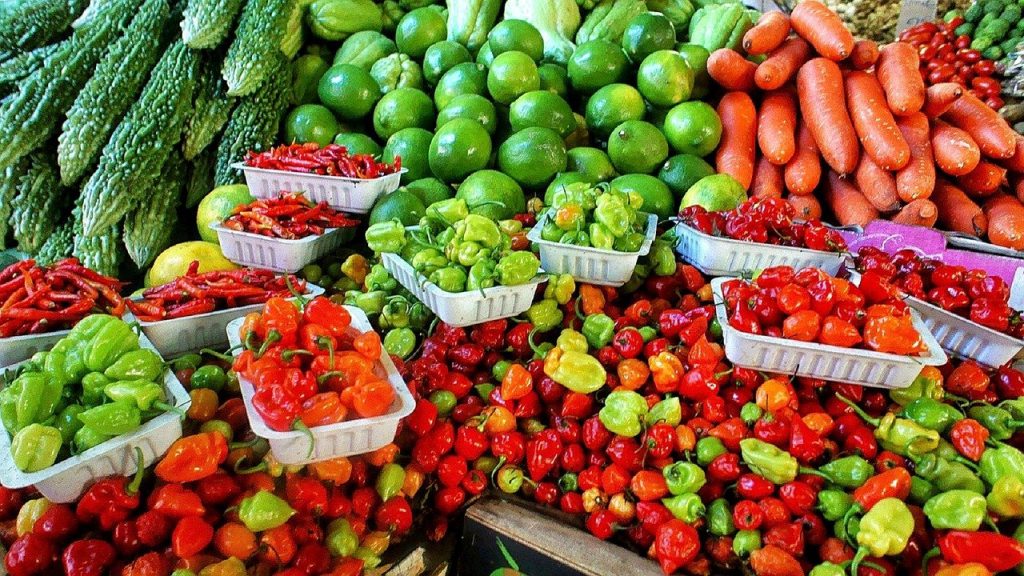Wisconsin Relaxes Food Stamps Rules
Residents using SNAP benefits can now buy groceries online.
Grocery shopping has taken on new risks and obstacles during the pandemic, from cashiers encased in plexiglass, bans on cloth bags and X marks on the floor for social distancing between shopping carts. For the elderly, immune-compromised individuals or others worrying about exposure to COVID-19, shopping online has proven to be a good alternative.
But up until this week, it has not been an option for Wisconsinites who buy their food using the Supplemental Nutrition Assistance Program, which does not permit online shopping without a state waiver.
Wisconsin became the 10th state to receive permission from the U.S. Department of Agriculture (USDA) to allow such purchases. Wisconsin’s Democratic federal delegation — Sen. Tammy Baldwin and Reps. Gwen Moore, Ron Kind and Mark Pocan — worked with Gov. Tony Evers to secure the necessary changes.
Evers’ office did not respond to requests for information on his involvement.
More than 572,000 individuals in 291,000 households use SNAP — often called food stamps — in Wisconsin.
Moore said it is something her constituents have been calling for, including one person who has chronic respiratory disease and no car. The individual had to risk not only shopping at the store, but also taking a bus to get there.
Moore sees the success as one step forward, with more work to do to combat what she calls “rising food insecurity” and needs that are overwhelming food banks.
On April 23, Wisconsin received approval for a supplemental food buying program called Pandemic EBT for eligible SNAP households to offset the cost of meals that would have previously been consumed by kids while attending school. In Wisconsin during the current school year, 414,000 children were eligible to receive free-and reduced-price lunches, nearly half of the students at participating schools.
“These efforts are critical to ensuring our safety net programs are adjusting to our present public health and economic crisis,” added Moore.
More people need access to food stamp programs due to job losses or cutbacks in hours, others need food benefits to replace meals offered at schools for breakfast, lunch or after-school programs.
One day after securing the online shopping option, Baldwin turned her attention to petitioning the USDA to ensure SNAP participants could receive home food delivery and curbside pickup during the pandemic.
“The COVID-19 pandemic has resulted in an unprecedented rise in unemployment and a subsequent increase in demand for food assistance,” Baldwin wrote to the USDA in a letter she sent along with a bipartisan group of her colleagues.
“At the same time, social distancing guidelines and stay at home orders have made it challenging — and unsafe — for many individuals to travel to purchase food. This is especially true for seniors and immunocompromised individuals who are at higher risk of serious illness from COVID-19, as well as individuals with disabilities and families who lack reliable transportation. We believe that no individual or family should be disadvantaged simply because they rely on SNAP benefits to access the food they need.”
House Heroes Act includes SNAP
The massive Heroes Act bill put forward by House Democrats would provide $10 billion to support increases in SNAP participation and fund flexibilities offered in the previous coronavirus relief bill. It includes a 15% increase to the maximum SNAP benefit and an additional $1.1 billion for nutritious food for low-income pregnant women through the Women Infants and Children (WIC) program.
Moore spearheaded efforts in Congress to provide greater flexibility in WIC, allowing recipients to use benefits online and over the phone. She had 95 of her colleagues sign on to a letter she and Rep. Andy Levin (D-Mich.) sent with that request. And she’s advocated for the expansion of SNAP, in addition to her call for flexibility.
“She wants to ensure that our safety net programs are meeting the needs of Wisconsinites and Americans across the country,” explains her spokeswoman.
AGs push Purdue to protect SNAP
Wisconsin Attorney General Josh Kaul joined with 21 of his colleagues in other states and the City of New York demanding that the Trump administration “immediately suspend rulemaking” that would cut food assistance for 3.1 million Americans.
A proposed rule would take SNAP benefits away from them, as well as making it more difficult to qualify for food benefits. According to the state Department of Justice, it would also impose significant new administrative burden on the states — all during a pandemic and the resulting economic crisis.
The proposed SNAP rule would limit access by eliminating a policy that allows states to make low-income families automatically eligible for SNAP benefits if they have already qualified to receive other types of public assistance. This also allows states to take into account a family’s critical expenses including housing, childcare or education costs.
In the letter Kaul and other attorneys general sent to Secretary of Agriculture Sonny Perdue, they argue that finalizing the rule during a time of economic crisis would impair the national response to COVID-19.
As of press time, they had not received a response from Perdue, Kaul’s office said.
“It is vital to our national response to this crisis that people who are supposed to stay home be able to have food on the table at home,” they wrote. “Those who are working from home, or are staying home and unable to look for work, or are staying home from school or daycare, still need to eat.”
Reprinted with permission of Wisconsin Examiner.






















